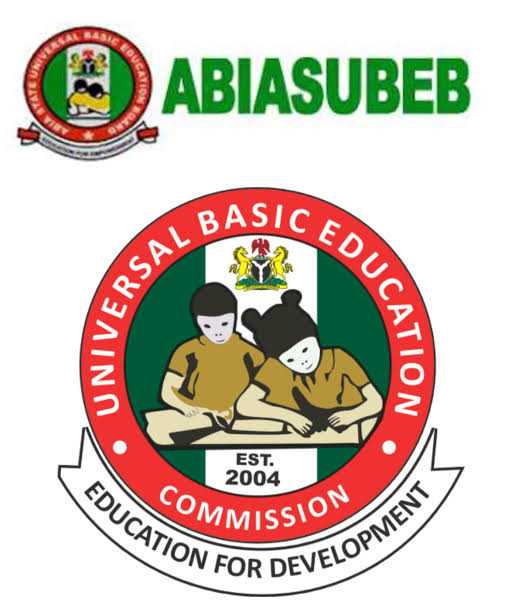The Abia State Government has commenced the process of domesticating the National School-Based Management Committee (SBMC) policy to enhance educational governance and strengthen community involvement in schools.
This was disclosed by the Executive Chairman of the Abia State Universal Basic Education Board (ASUBEB), Lady Mrs. Ezihe Lydia Onuoha, during the official opening of an advocacy meeting and a participatory three day workshop on the domestication of the School-Based Management Policy in Abia State. The workshop, themed Strengthening School-Based Management Committees for Improved Educational Governance in Abia State through the Domestication of the School-Based Management Policy, was held at Benpac, Umuahia.
Speaking, the Honourable Commissioner for the Ministry of Basic and Secondary Education, Elder Goodluck Chinedu Ubochi, represented by the Director of Inspectorate, Pastor Umunna Ijeoma, commended His Excellency, Dr. Alex Chioma Otti, for his transformational leadership in education. He also praised the Executive Chairman of ASUBEB for organizing the landmark domestication workshop to ensure community involvement in the education sector. He urged the committee to expedite efforts to complete the Abia State SBMC policy document framework in the shortest possible time.
Earlier speaking, ASUBEB Executive Chairman, Lady Mrs. Ezihe Lydia Onuoha, emphasized that the workshop aims to develop an Abia State SBMC policy aligned with national standards while considering the peculiarities of the state. She reiterated the government’s commitment to strengthening community involvement in education and improving learning outcomes across Abia. The domestication process, she noted, seeks to foster a strong working relationship between schools and their host communities, encourage parental participation in their children’s education, ensure the security of school properties, and promote collaboration between parents, schools, and teachers.
She further stated that the three-day workshop would facilitate the development of a framework for the domestication of the NSBMC policy in Abia State as marks a significant milestone in Abia State’s educational reforms, reinforcing the government’s dedication to inclusive and community-driven school governance.
By the end of the workshop, stakeholders are expected to produce a comprehensive document that will serve as the foundation for the state’s SBMC policy. She expressed her gratitude to the Honourable Commissioner for Basic and Secondary Education, Elder Goodluck Chinedu Ubochi, and the Honourable Commissioner for Local Government and Chieftaincy Affairs, Hon. Uzor Nwachukwu and other partnering MDAs, for their invaluable support in prioritizing educational reforms and ensuring the revitalization of schools across the local government areas.
In his remarks, the Honourable Commissioner for Local Government and Chieftaincy Affairs, Hon. Uzor Nwachukwu, represented by Mrs. Ngozi Akpara, applauded Governor Alex Chioma Otti for his unwavering commitment to education. He commended the ASUBEB Chairman for her relentless efforts in reshaping schools across the state, emphasizing that the domestication policy framework would significantly enhance the relationship between schools and their respective communities.
Contributing, the Special Adviser to the Governor on Policies and Interventions, Rev. Anokwuru Christian Uche, PhD, Michael, represented by Mr Joshua Moses, lauded the Executive Governor for his strides in the education sector. He stressed that the workshop would provide a roadmap for the domestication of the National SBMC Policy in Abia State, fostering a strong and productive relationship between schools and the communities.
Additionally, The Policy Reforms Advisor and workshop facilitator, Jummai Sarki, and Abia Policy Innovation Centre, Researcher and workshop facilitator Mr. Joshua Moses Ogbada, commended Governor Alex Otti for his transformative approach to education and praised the ASUBEB Chairman for spearheading the domestication initiative as it is the first of its kind in the history of Abia State. She outlined the key objectives of the domestication process, which include: Increasing awareness of the benefits of school-based management policy domestication. Enhancing commitment to integrating SBMC policies into operational frameworks. Clarifying the roles and responsibilities of school management committees, local education authorities, and the community in school governance. Strengthening collaboration between schools, communities, and government institutions to improve educational service delivery. Developing a roadmap with practical steps, timelines, and responsible entities. Identifying funding sources and support mechanisms for effective implementation. Establishing strategies for accountability and transparency. Achieving consensus on institutional structures to support policy domestication.
The three-day workshop declared open by ASUBEB Executive Chairman featured notable Board members, participants, and Stakeholders, including Board Member I, Dr. Onyebuchi Onyegbule, Member II Deaconess Chioma Nwaogwugwu, Member III, Hon. Harrison Onuke, Director of the Secondary Education Board, Mrs. Ngozi Onwubiko; NASU/SUBEB Abia Branch Chairman, Comrade Isdore Ibebuike (PhD); SBMC representatives, Sir Dr. Chibueze Agu and Cosmos Onyekwere; NUT Chairman, Friday Madu; Dean of Education Secretaries, Kalu Chijioke Azuma; ASUBEB Management Staff, and other SBMC stakeholders.
Ekeoma Lekwauwa
PRO ASUBEB

























